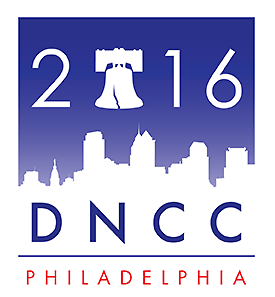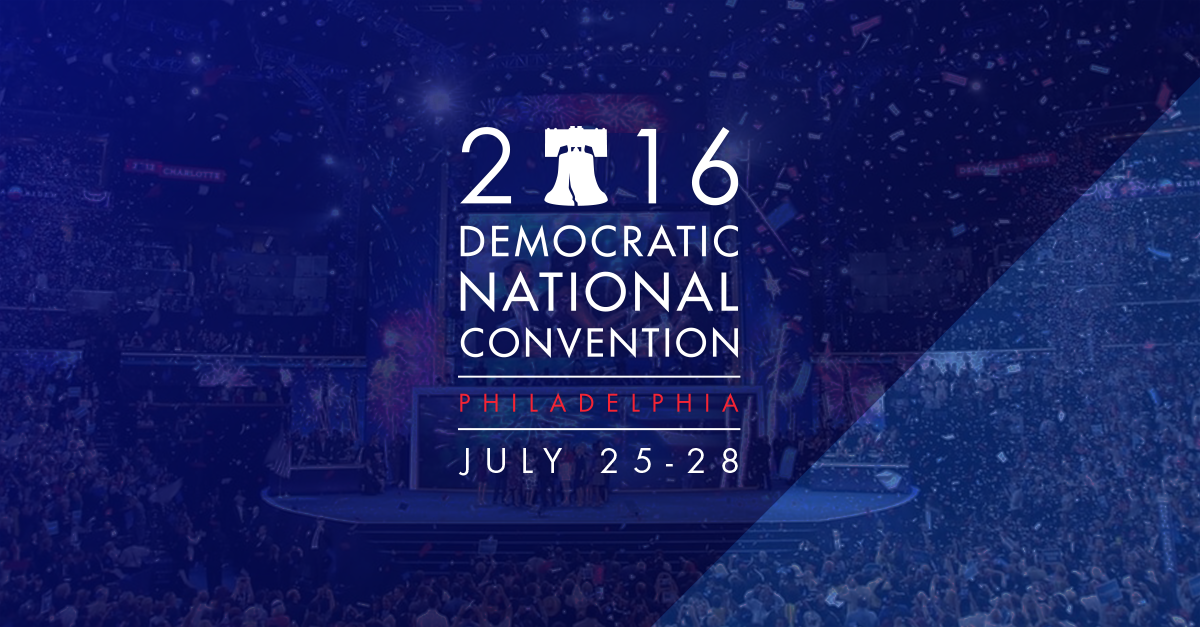Stay tuned for a piece examining the Republican Platform coming soon!
 Washington, July 12 – People with disabilities achieved a great victory in the 2016 draft Democratic National Committee (DNC) Platform.
Washington, July 12 – People with disabilities achieved a great victory in the 2016 draft Democratic National Committee (DNC) Platform.
While it may appear that platform’s disability rights section has shrunk in comparison to the 2012 platform, when the document is examined in entirety, people with disabilities are included in numerous other sections, from employment, minimum wage and housing to technology, education and voting rights.
Fully one out of five voters have a disability, and 52 percent of likely voters have a loved one with a disability. While the disability community is the largest minority in America, a lot of the community’s agenda has not been met in a way similar to how other minorities and other interest groups have been able to reach some attainable goals.
In the last cycle, the issue of disability very rarely came up. The word “disability” was hardly mentioned at town halls, debates and party conventions.
“Disability is an issue that is really still in the shadows,” RespectAbility President Jennifer Laszlo Mizrahi said. “There’s so much stigma around disability that people don’t really talk about it publicly. I am especially pleased to see that employment for people with disabilities made it into the Democratic platform and hope the same will take place with the Republican platform.”
In the draft 2016 DNC platform, disability issues are not just in their own section but incorporated throughout the entire document, starting in the introduction where people with disabilities are included in a list of other typically disadvantaged minorities – much like presumptive Democratic nominee Hillary Clinton has been doing more recently in her speeches and rallies.
“We believe in protecting civil liberties and guaranteeing civil rights and voting rights, women’s rights and workers’ rights, LGBT rights and rights for people with disabilities,” the draft of the 2016 platform states in the introduction.
The specific disabilities rights section draws attention to four items, including “improving access to meaningful and gainful employment for people with disabilities.”
Only one-in-three working-age Americans with disabilities have jobs, despite the fact that the vast majority want to work. There are 22 million working age people with disabilities in our country and more than half of them are now living on government benefits.
“America has 1.2 million youth with disabilities between the ages of 16 and 20.” Mizrahi said. “Each year 300,000 of them age into what should be the workforce, but stigmas and lack of knowledge about the capabilities of people with disabilities means that most do not find employers willing to hire them. They have high expectations of finding work and deserve the opportunity to achieve the American dream.”
Other places where disability is incorporated include sections on the minimum wage (“ending the sub-minimum wage for tipped workers and people with disabilities”), technology (“to promote community participation and enhance opportunities to achieve greater economic self-sufficiency for people with disabilities”), housing, civil rights, voting rights and early childhood education.
However, some disability activists are upset that the platform is missing support for the Disability Integration Act, which would allow people with disabilities needing help with everyday tasks who previously have been forced into institutions to instead live in their homes in the community with appropriate aid. Hillary Clinton affirmed support for the act in April.
Fellows and staff members representing RespectAbility, a nonprofit, nonpartisan organization working to enable people with disabilities to have a better life, spent months on the campaign trail in the early primary states engaging candidates on both sides of the aisle on a variety of disability issues and asking candidates to complete the #PwDsVote 2016 Presidential Campaign Questionnaire. Many of the questions asked are similar in topic to the places where the platform incorporates disability.
The questionnaire was distributed to all the presidential candidates in January. While Hillary Clinton‘s campaign responded in full, Donald Trump’s campaign has yet to respond. Alliance Center for Independence and REV UP New Jersey are organizing a Trump Call-In Day to encourage the campaign to respond to the questionnaire on Thursday, July 14.
RespectAbility just launched a similar nonpartisan campaign questionnaire for Senate and gubernatorial races. More information can be found HERE.
Numerous other initiatives around the country also have been created in addition to RespectAbility’s outreach, including: #CripTheVote, a nonpartisan campaign to engage both voters and politicians in a productive discussion about disability issues in the United States, with the hope that disability takes on greater prominence within the American political landscape; and the American Association of People with Disabilities’ REV UP (Register, Educate, Vote and Use your Power) campaign, among others.
The platform will be accepted officially on the first day of the Democratic National Convention on Monday, July 25.
RespectAbility is holding a free national training seminar on “Campaign 2016 and People with Disabilities: Enabling Access and Opportunities for All” on August 8th in Washington, D.C. To sign up go HERE.

[…] we reported earlier this month, the draft of the platform already was an improvement over previous years. People with disabilities […]